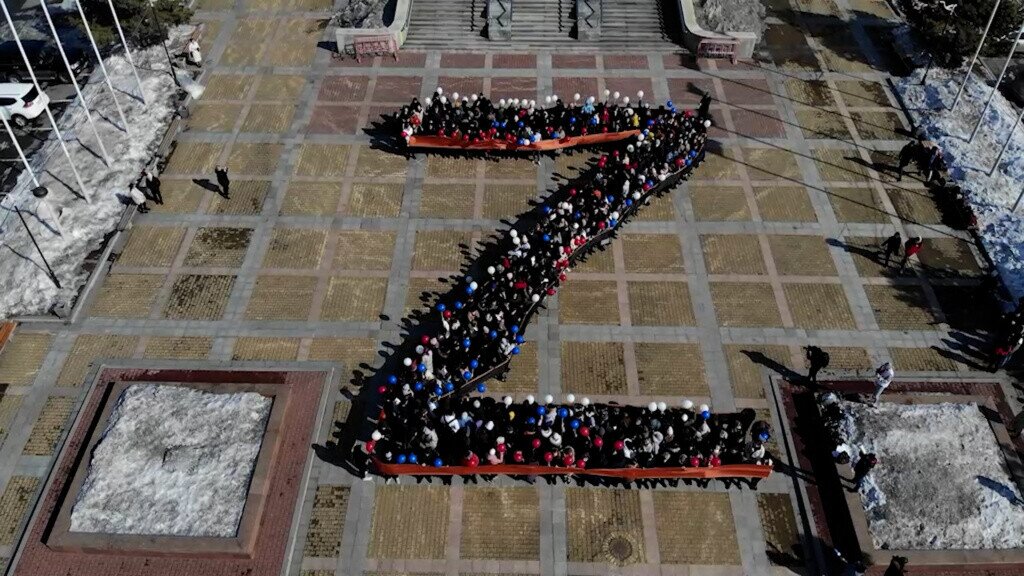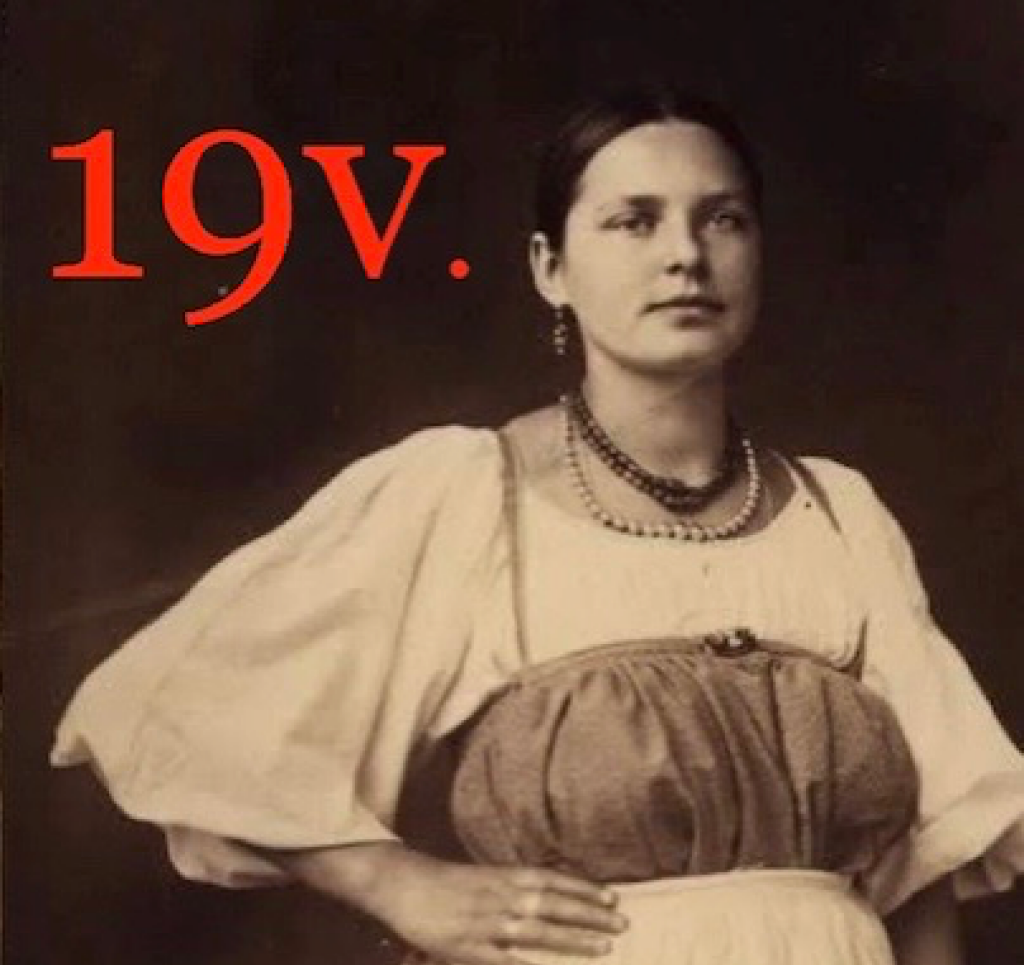Claudia Eggart is a social anthropologist currently based in Buchareast as a visiting fellow at the New Europe College. She is completing her book, Lived Geopolitics. Re-scaling Market Infrastructures from Soviet Collapse to Imperial Backlash, and developing a new research project on fluvial infrastructures in the Lower Danube Delta.
This post derives from her article “ ‘They Called Us Spekulyanty’: Shame and Pride in the Biographies of Female Shuttle Traders in Post-Soviet Russia,” published in Europe-Asia Studies in 2023.
The end of the Soviet Union produced a seismic shift in Russia's economic and social fabric. Amid the chaos of this transformation, the biographical narratives of shuttle traders or chelnoki offer a vibrant, intimate glimpse into the personal and societal upheavals of the early 1990s. Central to understanding these changes are the emotions of shame, styd, and pride. gordost’, which, when examined through the lens of evolving moral, class, and gender regimes, reveal their pivotal role in shaping post-Soviet Russia's socioeconomic landscape.
Emotions at the Heart of Post-Soviet Transformation
The dismantling of state control in 1991 unleashed a tidal wave of entrepreneurial activity, as open-air markets burgeoned and small-scale cross-border trade took off. The economic disarray of the time, characterized by soaring unemployment and unpaid wages, compelled many people, especially women, to turn to informal trade. The easing of travel restrictions and deregulation allowed them to import goods from China, Turkey, and Poland, which they sold at a premium in burgeoning street markets. In fact, makeshift open-air markets mushroomed all across the formerly Soviet and socialist countries of Central, Southeast, and Eastern Europe.
In Russia, the number of shuttle traders soared to an estimated 30 million by 1996, making them a lifeline for consumer goods and hard currency. Despite their critical role, trading women often faced suspicion and stigma, casting a long shadow over their contributions not only to economic, but also to social reproduction.
Shame and Pride as Key Emotions of Social Change
Before Soviet collapse, individual trading of foreign goods was legally forbidden and socially proscribed. Although small-scale trade had existed before in an illicit capacity, the scale and context of post-Soviet trading introduced new challenges and opportunities. In my research, I argue that shuttle trading was more than a continuation of previous black-market activities. It was a complex phenomenon deeply influenced by emotions like shame and pride, which were not merely private feelings but reflections of broader economic and social shifts. These included the significant profits involved in the business, but also the exposure of traders to a disapproving public, as well as the rampant criminality and lawlessness that characterised the 1990s.
Examining the biographical accounts of women shuttle traders reveals shame and pride as vital forces shaping and reflecting the new capitalist order. This finding aligns with recent scholarship that emphasizes the importance of emotions in understanding societal transformations. The "emotional turn" in the humanities and social sciences has unveiled the relation between the body and the social and power structures that determine the politics of its experiences. Women shuttle traders’ experiences illuminate broader shifts in social status and economic practices, showing that shame and pride were key to navigating and negotiating evolving moral, class, and gender regimes of post-Soviet Russia.
Economic Morality
The transition from Soviet to market economies fundamentally altered the public’s perceptions of wealth and success. Under Soviet rule, profit-making was vilified, and speculation was viewed as theft. This negative view persisted into the post-Soviet era, casting a pall over market trading.
For instance, take Anna, a businesswoman from Ekaterinburg. At 24, she bought a new Mercedes—a sign of her rapid rise as a shuttle trader. Yet her newfound wealth was met with scepticism and labelled as immoral. Anna’s success, like that of other women, drew criticism from her family, friends, and the broader public, where profit-driven work and consumerism were often regarded as less valuable compared to the Soviet ideal of labor for the common good. Indeed, post-Soviet markets became sites of social stratification, rife with corruption and extortion, where economic gains often depended on powerful connections.
The stigma surrounding shuttle trading was profound. Sveta, a former factory worker, describes how the shame she felt morphed into bodily postures: “We were hiding under the counter when people we knew passed by.” As a public space, the market exposed trading women to the judgement of others, rendering them emotionally and physically vulnerable. This situation ultimately affected the self-esteem of women like Sveta, who reported that “In the early 1990s, the attitude towards us was that we were speculators. And this is also how we thought about ourselves.” Through my interviews, it became clear that internalized shame was a common experience among many trading women..
However, by the late 1990s, market trading began to shed its stigma, eventually even evolving into a respected occupation. This shift was not straightforward. Rather, as biographical accounts reveal, shame and pride played a crucial role here as well, shaping negotiations of values and needs in times of extreme uncertainty and crisis.
Class Divisions
In post-Soviet Russia, pride and shame took on new meanings amid economic transformation. I argue that, whereas pride in Western contexts might imply arrogance (as described, for instance, in the work of sociologist Thomas Scheff), in post-Soviet Russia, pride reflected the struggles of women striving to make sense of their position within a constantly shifting social and economic landscape.
The poor reputation of shuttle trading related to negative assessments of working for profit, as opposed to working for the common good. It also had to do with the devaluation of market activities as such, with some viewing them as being beneath individuals with higher education. Tanya, another businesswoman from Ekaterinburg, distanced herself from shuttle trading, finding it embarrassing compared to more prestigious ventures like selling expensive garments via commission shops. Her rejection of the chelnoki label helped her assert her social status in uncertain times.
In contrast, traders like Lyubov, who transitioned from respected professional roles to market trading, experienced a dramatic fall in social status. Her lament, “In shuttle trading, you lose your respect and recognition,” captures the emotional and social challenges of this transition.
In the early stages of socioeconomic change, traders often faced a mismatch between their new, lower social status and their ingrained class habits and beliefs. This clash highlighted the emotional dimensions of shame and pride, particularly around the stigma of market trading. The way social status shapes these emotions underscores the profound connection between personal experiences and broader societal shifts. This link is especially evident in the evolving gender dynamics of post-Soviet societies.
Gender Dynamics
The rise of market capitalism intensified gender-specific challenges as women navigated new economic realities while confronting entrenched gender biases. Similar to the degradation of shuttle trading from the perspective of economic morality and social status, many participants struggled with allegations that cross-border trade was not a proper occupation for women. Despite their high participation in the workforce during the Soviet era, traders faced stigma due to the nature of their work. This stigma was compounded by traditional gender norms that deemed market trading inappropriate for women.
Lyubov’s experience illustrates the intersection of gender and economic shifts. Her move from a prestigious accounting role to market trading was met with jealousy and scorn by her husband. A trader named Nadezhda also struggled with her husband, who blamed her for conspicuous consumption while shamelessly enjoying the fruits of her labor. All of my female interlocutors stressed the challenges that their work posed for their relationships, as well as the broader societal discomfort emerging as women stepped into new economic roles.
Regardless of their social background, circumstances, or willingness to engage in the emerging market economy, all my informants emphasized that trading was a necessary, albeit forced, choice driven by a lack of alternatives. However, none saw themselves as victims of larger external forces. When asked about the female dominance in shuttle trade, no one attributed it to the deteriorating labor market of the 1990s as a gendered issue. Instead, they believed women were more suited for the work due to qualities like a better sense of fashion, strong sales skills, the advantage of negotiating with venders, policemen, and customs officers, as well as a genuine interest in travel—traits they felt men did not share to the same degree.
Conclusion
Given the negative views of shuttle trading, most of my informants who engaged in the business in the 1990s had to concurrently navigate gender-specific moral expectations, the distress caused by the strains of post-Soviet capitalism, and, last but not least, the criminality and lawlessness that characterized the period. For many, the so-called “wild (likhie) 1990s” have created a rift between the expectations and realities of a Western-style free market economy and complicated memories of the Soviet past.
The distinction between those who defined what was considered shameful and those whom they targeted proceeds from traders’ pre-1991 social status, and also affected their trajectories after 1991. For example, while retailing goods through luxurious commission shops wasn’t seen as shameful, women working as shuttle traders at open-air markets experienced shame due to public scrutiny, negative reactions from family and friends, and internal conflicts with their still-socialist values. Some traders distanced themselves from market work to assert their status and manage these emotions, reinforcing social hierarchies that influenced post-Soviet stratification.
By exploring these emotional dynamics, my research offers a deeper understanding of how continuities and ruptures of personal and social values interacted with, and shaped, the rapidly changing economic reality in post-Soviet Russia. Studying the biographies of women shuttle traders reveals their agency, as they were swift in adapting to, but also manipulating, the new realities to their own advantage. Their stories offer alternative visions to recently popularized meta-narratives that force memories of the 1990s into a stereotype of trauma and treachery.



